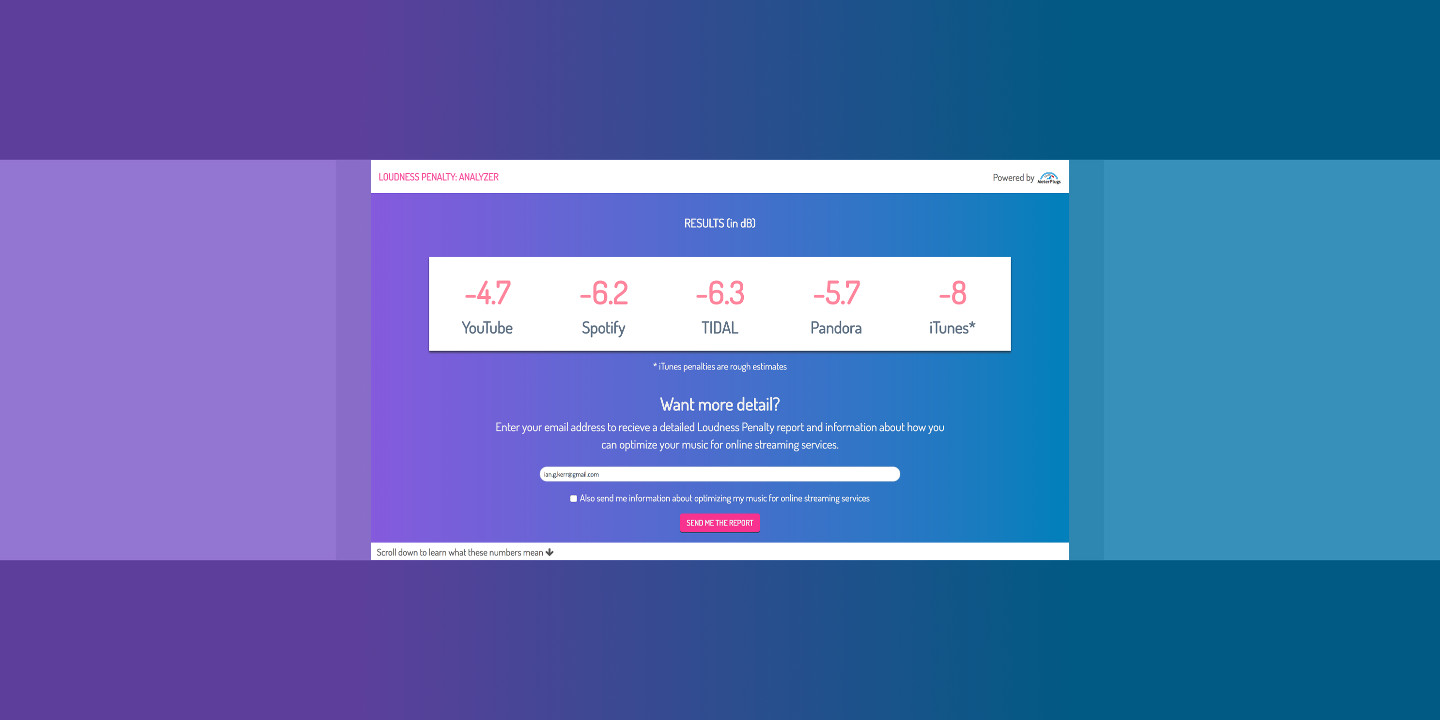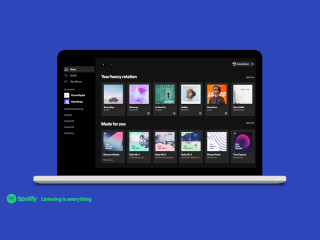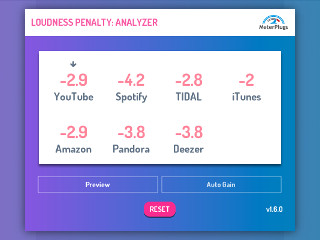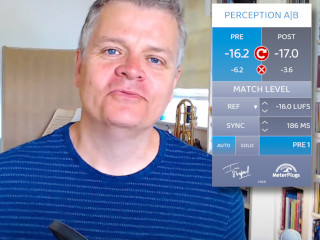Streaming services turn down loud songs. But they all do it in slightly different ways, which makes it difficult to know how your music will sound once uploaded.
Until now…
Introducing LoudnessPenalty.com, a new website that lets you quickly and easily find out how many decibels your music will be turned down (or up) by YouTube, Spotify, TIDAL, Pandora and iTunes Sound Check. We call this change in playback level the “Loudness Penalty” - the louder your music is, the higher its penalty will be, and the more it will be turned down.
Simply drag n’ drop a WAV, MP3 or AAC file, and within a few seconds, Loudness Penalty will display your results. Your music will NOT be uploaded - all processing happens in-browser - so the service is secure and anonymous.
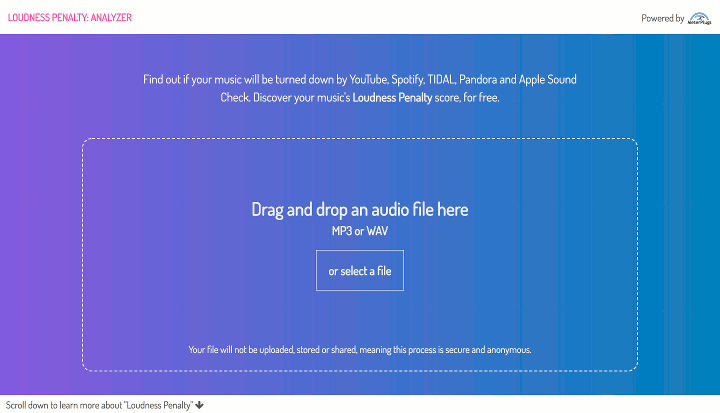 Loudness Penalty processing an audio file
Loudness Penalty processing an audio file
Best of all, it’s absolutely free! No sign-up is required, but the site does allow you to email yourself a Loudness Penalty report and sign up for a free email course that details exactly how the various streaming services work, and how to best optimize your music for them.
The Loudness Penalty report is a great tool to use with clients and producers who want a louder mix, because it shows them that a louder mix may simply be turned down.
It’s important to note that the computed Loudness Penalties are more precise than simple LUFS-based estimates (although TIDAL does use LUFS for normalization). Typically, the LP values are within +/- 0.5 dB.
We co-developed Loudness Penalty with mastering engineer Ian Shepherd of ProductionAdvice.co.uk. We both hope that you love it! If you do, please share the site and let us know what you think!
Now, what are you waiting for?
